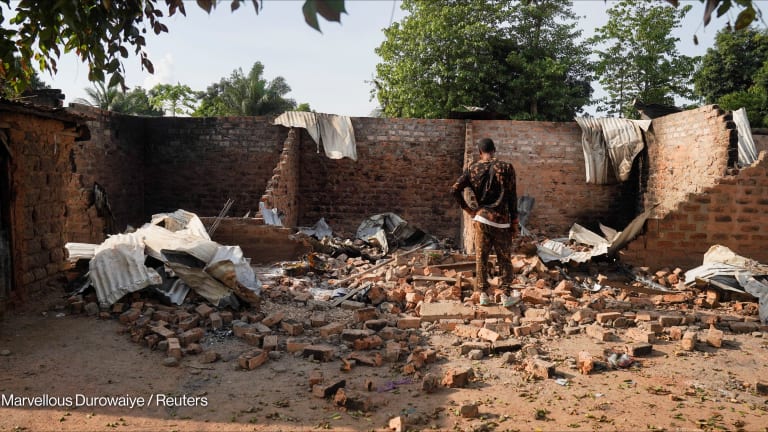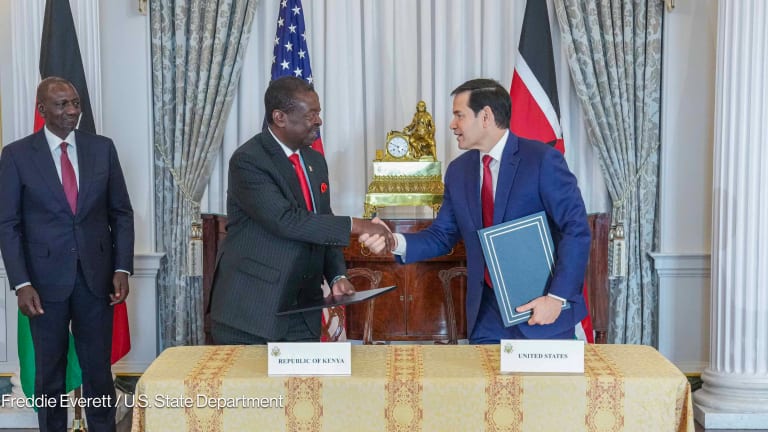
United States government officials responsible for implementing the Global Fragility Act faced questions on Wednesday from lawmakers critical of the Biden administration’s delays, which have seen Congressionally-mandated requirements missed by more than a year and a half.
Members of the House Foreign Affairs Subcommittee on International Development, International Organizations, and Global Corporate Social Impact also questioned whether the Department of Defense was sufficiently engaged in overhauling the U.S. strategy in conflict-affected and fragile states.
The Pro read:
Global Fragility Act country strategies to come this year: official
Assistant Secretary of State for Bureau of Conflict and Stabilization Operations Anne Witkowsky says U.S. embassies are already working on strategies for each of the five countries and region where the Global Fragility Act will be implemented.
The 2019 GFA, which drew lessons from decades of failed U.S. intervention in places such as Afghanistan and Iraq, requires a “whole of government” approach and direct engagement from officials at the assistant secretary level or higher at DoD, the State Department, and the U.S. Agency for International Development. It seeks to focus U.S. efforts on a prevention approach to stop conflict before it breaks out in fragile settings.
Democratic Representative Sara Jacobs of California, who chaired the hearing, queried whether DoD was fully committed to its implementation role, given the official representing it at the hearing was Deputy Assistant Secretary of Defense for Counternarcotics and Stabilization Policy James Saenz, a rank lower than required by law.
Saenz defended his role and sidestepped a direct question from Jacobs over whether the department will commit to the law by having an assistant secretary from DoD participating in interagency meetings as country and regional strategies are developed.
“The Department of Defense does understand the importance of the Global Fragility Act, it does understand it is law, and does understand that it needs to be prioritized,” Saenz said, adding that Assistant Secretary of Defense for Special Operations and Low-Intensity Conflict Peter Mayer’s portfolio is large and has considerable commitments.
”So I think to show that we think this is important, instead of him doing this as another task on his plate, he has assigned that task to me, who has the capacity and the capability to provide an appropriate focus,” he said.
Throughout the GFA process, there have been questions raised about whether DOD is truly engaged and has the appropriate buy-in from high enough levels to see a new prevention approach incorporated into department operations. One of the main criticisms of past U.S. stabilization efforts is a disconnect between roles and goals of each of the three agencies, preventing them from having a unified approach — and success — in fragile contexts.
The hearing came after the administration just last month named the four countries — Haiti, Libya, Mozambique, Papua New Guinea — and one region — West Africa, including Benin, Côte d’Ivoire, Ghana, Guinea, and Togo — where GFA will be piloted. Those selections were due to be presented to Congress in September 2020. Specific strategies for each were due in December 2020, but Assistant Secretary for the Bureau of Conflict and Stabilization Operations Anne Witkowsky told Devex last month she expects those will be submitted to Congress later this year.
In Wednesday’s hearing, lawmakers also questioned the efficacy of the GFA approach, which focuses on prevention and intervention before all-out conflict, in places such as Libya and Haiti. Members of Congress asked administration officials who exactly they were working with in Haiti, which has a tenuous government after last summer’s assassination of President Jovenel Moise.
Congresswoman Yvette Clarke, Democrat from New York, called the country’s interim government “the epitome of fragility.”
“We don’t want to expend a whole lot of resource, time, and talent in a dynamic that can’t be captured or advanced given the uncertainties around the current structure of governance in Haiti,” she said.
Haiti’s development strategy will be formed by government officials, but also members of civil society and outside groups, Witkowsky said.
Officials emphasized the importance of the GFA’s 10-year strategy, arguing that the long timeline provided the opportunity to overcome current challenges.
“Haiti is a crisis. It’s a crisis of governance, it’s a development crisis, it’s a humanitarian crisis, we hope for it not to become a national security crisis, and that’s one of the reasons we’re focused on what we can do in Haiti,” USAID Assistant Administrator for Conflict Prevention and Stabilization Rob Jenkins said.
“In Haiti right now, we don’t have political will. We certainly don’t have security, but at least we have a 10-year commitment for some strategic patience,” he added.
He noted that Libya too presents challenges as it begins to schedule elections, which the U.S. government supports.
It will be important for the U.S. administration to “course correct” when tactics used under the forthcoming GFA country strategies aren’t working, Jenkins said. Staff must also be able to take risks, he added, and react nimbly when a situation on the ground is changing rapidly.
“Adaptive management is going to be the linchpin for how we implement these strategies. And we need to have a 10-year strategy, but we need to have iterative and adaptable tactics within that strategy,” Jenkins said.
“A big part of my job when I'm not focused just on GFA is trying to get more of USAID to accept dynamic adaptable management in complex systemic environments. And you have our word that part of this act that we will stick to is to stop doing things that aren’t working and to change things when they need to be changed,” he said.








